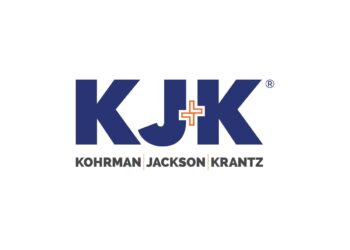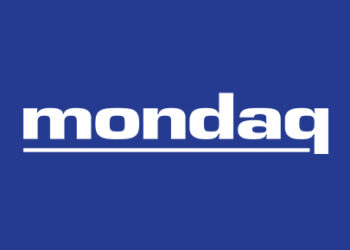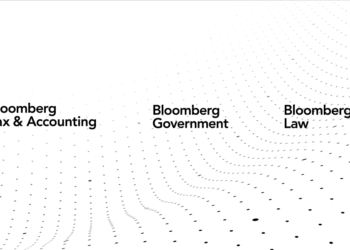On December 12, 2022, Custodia Bank (“Custodia”) – a state-chartered, digital asset-focused bank based in Wyoming – was denied its motion for a default judgment in its battle with the Federal Reserve Board of Governors (the “Board”) and the Federal Reserve Bank of Kansas City (the “KC Fed”) over its pending application for a master account with the Federal Reserve (the “Fed”). Custodia sought a default judgment in its bid for a master account because, it claims, the Fed “continues to drag its heels and create new ways to frustrate Custdodia’s efforts to obtain relief.”
Custodia seeks to become a full-service bank, providing traditional and digital (i.e., crypto) asset custody and related services. Custodia holds a new Wyoming state bank charter called a Special Purpose Depository Institution (“SPDI”), which, according to Custodia’s complaint, permits Custodia to provide custody services for digital assets and enables Custodia customers to use digital assets “to make a direct transfer, a purchase, or an investment, rather than having first to convert [the digital asset into fiat].” As explained by the Wyoming Division of Banking, the SPDI designation is intended to facilitate cryptocurrency banking, which might include providing custodial services with respect to virtual currencies, digital securities and digital consumer assets, undertaking authorized transactions on behalf of customers, and conducting activity under Wyoming regulations tailored to digital assets. However, state-chartered SPDIs are generally prohibited from making loans with customer deposits of fiat currency and must maintain certain “high-quality liquid assets” valued at 100% or more of their depository liabilities, thus making FDIC insurance optional. While this works for retail customers moving smaller sizes, a Federal Reserve master account (a “master account”), a “bank account for banks,” would enable Custodia to serve institutional customers by acting as a key to the Fed kingdom.
A master account would allow Custodia to serve institutional customers because it provides access to the FedWire network. FedWire processes trillions of dollars every day and is the Fed’s real-time settlement funds transfer system that allows financial institutions to transfer large sums of money. Custodia contends that a master account would allow it “to directly access the Federal Reserve, rather than going through an intermediary bank,” reduce costs, as well as undertake its digital asset strategy and “bring new products and options to users of financial services” and become a “compliant bridge between digital assets and the United States dollar payment system.”
Custodia filed its application for a master account in October 2020, but Fed officials have been weighing “novel risks” posed by such access since then and have yet to make a decision. The district court found that the review process for master accounts is not bound by the one-year deadline that applies to other banking agency decisions, though it noted that the typical review timeline is 5-7 days.
In June, Custodia filed suit alleging “a patently unlawful delay” in its application. Among other claims, Custodia argued that the Administrative Procedures Act (APA) allows it to “compel agency action unlawfully withheld or unreasonably delayed,” 5 U.S.C. § 706(1). In November, the judge presiding over the case handed Custodia a key win, declining the Fed’s bid to dismiss the action, ruling that Custodia stated a plausible claim that the KC Fed was subject to the APA and also “stated a plausible claim of unreasonable delay” against the Board and the KC Fed. (Custodia Bank Inc. v. Fed. Reserve Bd. of Governors, No. 22-125 (D. Wy. Nov. 11, 2022)). The court subsequently denied Custodia’s motion for a default judgment, giving the Fed until February 2023 to prepare and submit an administrative record in this “APA judicial review action.”
During the pendency of this suit, the KC Fed cited the Board’s consideration of proposed guidelines, first released in May 2021, for evaluating nontraditional financial institutions’ requests to be granted master accounts and access to the Fed’s payment services as one reason for its delay in processing the application. In September 2022 the Federal Reserve announced and adopted final guidelines for “fintech firms and other novel financial firms” access for master account access and services with the Federal Reserve. Under the guidelines, each regional bank would rule on a bank’s application (in Custodia’s case, the KC Fed would rule).
The guidelines analyze five risks in addition to the general eligibility requirement that a requesting firm “should have a well-founded, clear, transparent and enforceable legal basis for its operations” and that the services should comply with the Bank Secrecy Act and AML/KYC regulations:
- Credit, operational, settlement, cyber, or other risks presented to Reserve banks.
- Credit, operational, settlement, cyber, or other risks introduced to the “payment system.”
- Risk to the stability of the US financial system.
- Risk to the overall economy through activities such as “by facilitating activities such as money laundering, terrorism financing, fraud, cybercrimes, economic or trade sanctions violations or other illicit activities.”
- Risk to the “Federal Reserve’s ability to implement monetary policy.”
The above considerations focus on both macro risks and micro risks when evaluating an application for a master account. On the macro front, a Reserve Bank will analyze risks to the payment and US financial system. On the other hand, a Reserve Bank will examine an applicant’s ability to comply with laws and regulations, and its ability to oversee its own risk management system and AML compliance program. While these guidelines clarify a previously more opaque process for fintech and neobanks, it is not entirely clear how a Reserve Bank should weigh these considerations to “support consistency…across Reserve Banks.” Moreover, the Board noted that “legal eligibility does not bestow a right to obtain an account and services,” that individual Reserve banks retain discretion in granting them, and that the account-holding Reserve Bank may, at its discretion, decide to place additional risk management controls on the account and services, such as “real-time monitoring of account balances” to mitigate risks. It also noted that “Reserve Bank assessments of access requests from non-federally-insured institutions may require more extensive due diligence.”
The master account battle plays right into the Federal Reserve’s concerns about the risks of digital assets to the broader financial system, discussed in our previous article. In its Report on Digital Asset Financial Stability Risks and Regulation (the “Report”), the Financial Stability Oversight Council (“FSOC”), which identifies risks and responds to emerging threats to financial stability, warned that “crypto-asset activities” could pose risks to the traditional financial system (i.e., “TradFi”) if crypto-assets became increasingly interconnected with TradFi or their use further blossomed without appropriate regulation and coordination among state and federal regulators. Accordingly, the Fed is examining whether providing a master account to Custodia increases the interconnectedness of the crypto and traditional financial ecosystems in a way that the FSOC seeks to avoid.
While the FSOC Report states that the overall level of involvement of the banking system in crypto-assets activities “remains relatively low,” the FSOC states that banks are beginning to assess and consider offering crypto-asset services that might subject such banks to small exposures, yet will only increase the interconnection between digital assets and traditional finance. The Report similarly documents a growing set of private investments in crypto-asset entities, more on-ramps for consumers and retail investors to interact with crypto-assets, and some municipalities announcing plans to accept crypto-assets for payments.
The Fed’s hesitancy to issue a master account can be understood in the context of digital assets’ unique technology and, therefore, the challenges posed to TradFi. As we’ve seen in the recent bull and bear markets, digital assets are incredibly volatile. Recently, a high-profile algorithmic stablecoin collapsed, leading to broad crypto contagion that led to the bankruptcies of many venture capital funds, hedge funds, and centralized finance (“CeFi”) lenders and exchanges. Even though the crypto contagion is cabined to CeFi firms, volatility breeds instability, so the Fed may be uncomfortable risking broader market contagion until the technology’s effect on TradFi is further understood.
Indeed, some digital asset-related activities lack basic risk controls to protect against run risk or prevent excessive leverage, which has led to several bankruptcies. Interconnections inside the crypto ecosystem between platforms, investors, lenders, and counterparties can spread losses such that a shock or a sharp price decline in common holdings of a crypto-asset can cause instability or default of one interconnected entity.
On the other hand, advocates argue that the runs, instability, and bankruptcies result from offshoring and a lack of regulatory clarity. Investors might be better protected if the US brings fintech and novel financial firms under the regulatory umbrella. And to Custodia, this delay by the Fed has allegedly “eliminate[d] much of the competitive benefit that Custodia would enjoy from using the charter that Wyoming granted it, thus benefiting existing and entrenched competitors.”
Whether the master account is granted or refused after KC Fed review or whether a judge forces the KC Fed’s hand remains unclear. Recent congressional and regulatory focus on digital asset firms in the wake of recent turmoil in the crypto asset space may also provide clarity for firms and investors alike, albeit the effect of such scrutinizing remains to be seen. The Custodia dispute also shines a light into how states, in the absence of comprehensive federal regulation, have instituted various regimes to encourage crypto-related innovation and development – some with tighter oversight (e.g., New York’s BitLicense regime) and others with a lighter regulatory touch, such as Wyoming’s set of updated banking laws. As we see in the Custodia suit, uncertainty arises when such state regulatory systems present potential issues for the Federal Reserve’s prudential stewardship of the overall economy.
[View source.]
Read the full article here

















